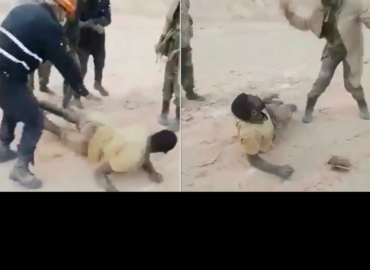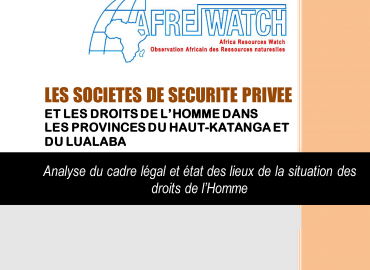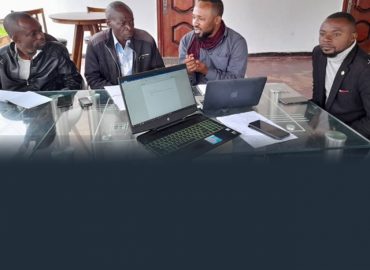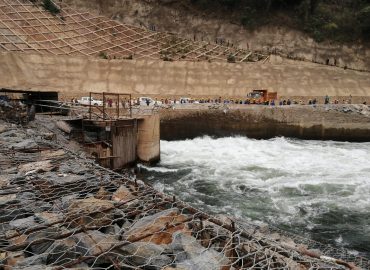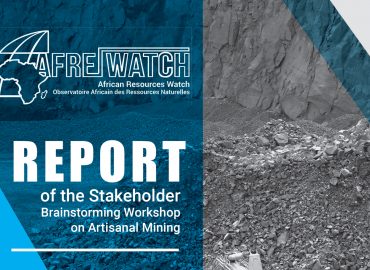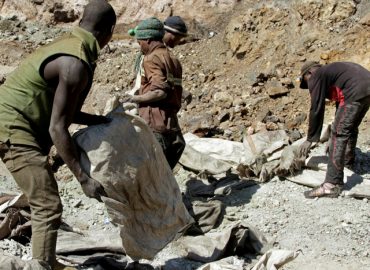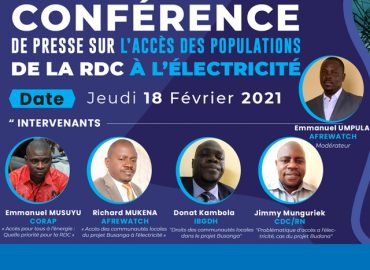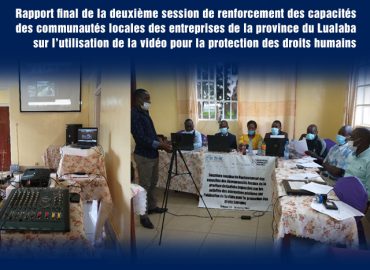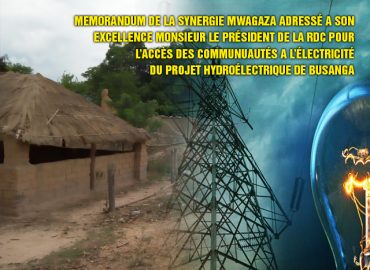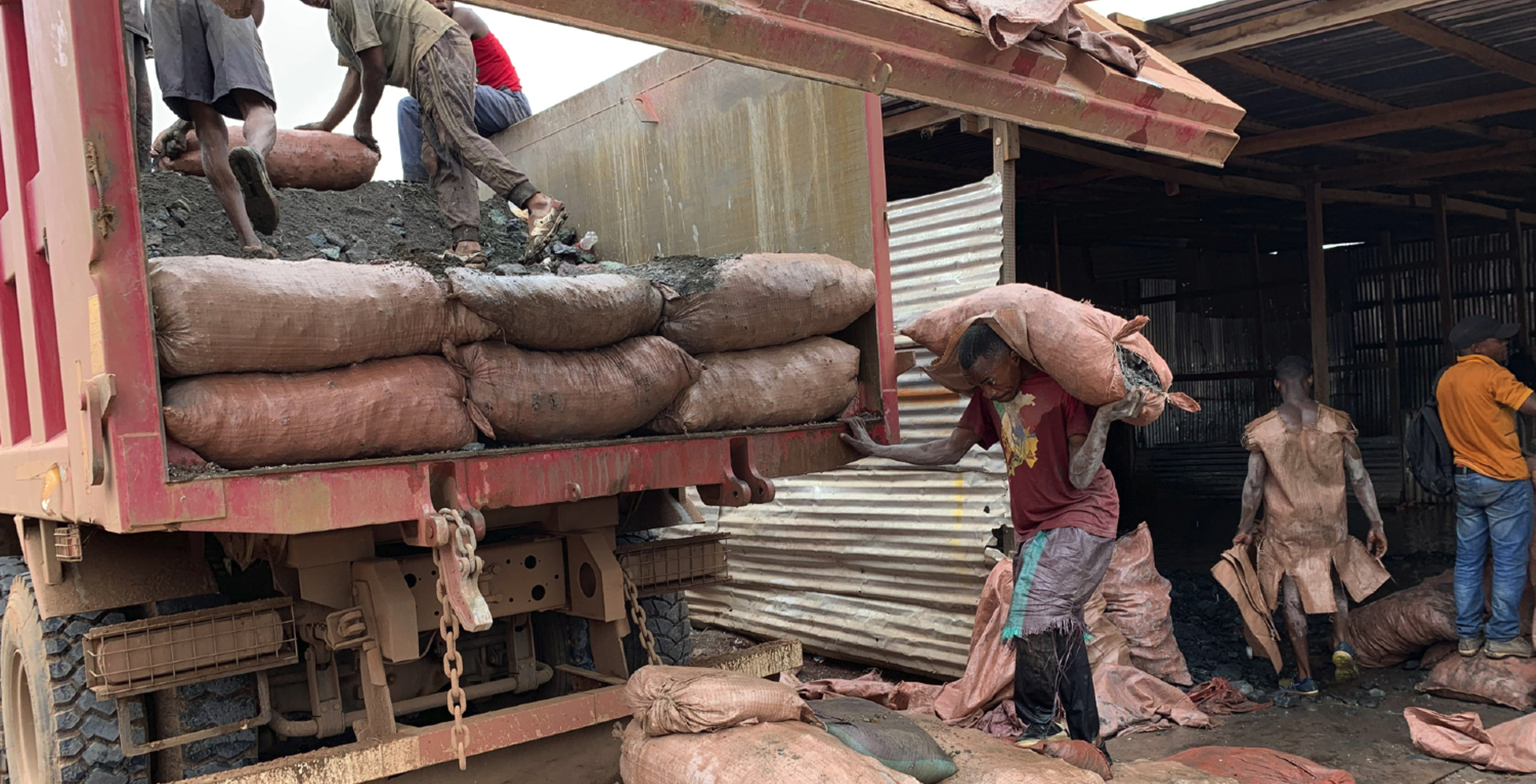The OECD provides an overview of ‘building back better’ (BBB): an effort to avoid a return to ‘business as usual’ and the environmentally destructive investments and activities that characterised the pre-COVID-19 world.
Essential to BBB is improved societal resilience – greater wellbeing, equality and inclusiveness – and greater environmental resilience, with climate-responsive strategies and increased circularity in supply chains.
The artisanal cobalt sector exemplifies some of the inherent contradictions in the green energy sector and the BBB agenda.

Cobalt is a required metal within the battery technology driving the transition to ‘greener’ electric vehicles. It also provides an income to 150,000-200,000 artisanal miners and their dependents in impoverished areas of the DRC.
However, cobalt mining – both industrial and artisanal – has significant environmental impacts ranging from habitat destruction to water and air pollution. And the artisanal cobalt sector, which supplies 10-30% of cobalt out of the DRC (the world’s largest supplier of cobalt), is beset with extreme social and human rights challenges. This includes child labour, forced labour and the sexual exploitation of women and girls.

Artisanal mining tunnels dug into a hillside in the DRC’s Copperbelt – an area once with unique biodiversity heritage. Artisanal (and large-scale) mining’s reputation for environmental damage is well known. While more effective regulation is needed to tackle these environmental challenges, so is greater opportunity for equal income earning opportunity both inside and outside the sector (Photo: Afrewatch 2020)
The impact of the COVID-19 pandemic on the artisanal cobalt sector was first to trigger a five-month lockdown from April to September 2020 in which all mines were technically required to shut. Significant export difficulties meant reduced demand for cobalt and fewer traders.

Some miners continued to mine – unable to find alternative work or rely on any social safety nets. For the same amount of back breaking work, miners were forced to accept significantly lower prices (sometimes a third of pre-COVID-19 prices) to cover their expenses alone.

Once lockdown lifted, however, it was very much a return to business as usual – not ‘building back better’. Cobalt prices rebounded in early 2021 to reach levels not seen since 2018.
The DRC government and powerful supply chain actors have been working hard to revamp the sector’s image and practices. However, IIED and Afrewatch’s research into these efforts over the past year has concluded that the way these initiatives are currently structured risk creating “islands of responsibility” within a sea of ongoing marginalisation – increasing, not overcoming, inequality between powerful multinational companies and local miners.

The OECD identifies a key vulnerability in our societies and economic system: “prioritising short-term economic growth and efficiency over long-term resilience – can have huge societal costs”.
Conversations during our research indicated that the corporate, capitalist culture that continues to dominate discussions on ‘more responsible mineral sourcing’ is at odds with the longer-term perspectives that are needed to drive structural change in the artisanal cobalt sector.
Fundamental challenges, as identified by miners themselves, include:
- Insufficient licenced artisanal mining zones (which would also need proven cobalt reserves and financing to undertake necessary groundworks)
- Unfair and corrupt pricing and value assessment to miners for cobalt, and
- Unrepresentative and undemocratic worker led cooperative.
Key actions are needed to ensure a resilient and inclusive cobalt sector.
Greater inclusivity and equality in the artisanal cobalt sector in the DRC require access first for artisanal miners to mineral licences over proven cobalt reserves.
Currently, much of the DRC’s Copperbelt is already under license to industrial mining companies, including the parastatal Gecamine. Greater equality for artisanal miners requires policymakers to address the industrial mining bias within decision making in the mineral sector.
It also requires them to tackle the disincentives to change created by the system of ‘informal’ payments to political elites benefiting from an informal artisanal sector.

Greater equality requires fairer pricing and a fair living wage for artisanal miners – commensurate with the level of wealth driven through supplier chains for battery operated goods.
Equality further requires explicit efforts to tackle endemic gender discrimination. Women remain culturally and therefore economically sidelined within the artisanal mining sector. Yet the sector potentially offers women greater earning potential than agriculture and service industries.

Greater inclusivity needs miners to have a space and a voice where decisions are made.
Many current supply chain and government initiatives have had limited direct engagement with miners to inform the development of ASM cobalt sourcing standards – decisions that directly impact their livelihoods. This inevitably leads to efforts that are not fit for purpose and fail to drive and incentivise changes in practices at a large scale.
Miners, both male and female, need also to be more effectively represented within local cooperative structures that are currently seen as a primary instrument in the drive towards formalisation.
While our research didn’t cover environmental impacts, the fact that the region is a net importer of food from Zambia highlights the challenges of growing food in areas set aside for mining.
Greater efforts are needed to bring issues of food security, climate change and environmental resilience into current discussions within DRC policy circles and at the supply chain level in, for example, the Global Battery Alliance and Cobalt Action Partnership.


